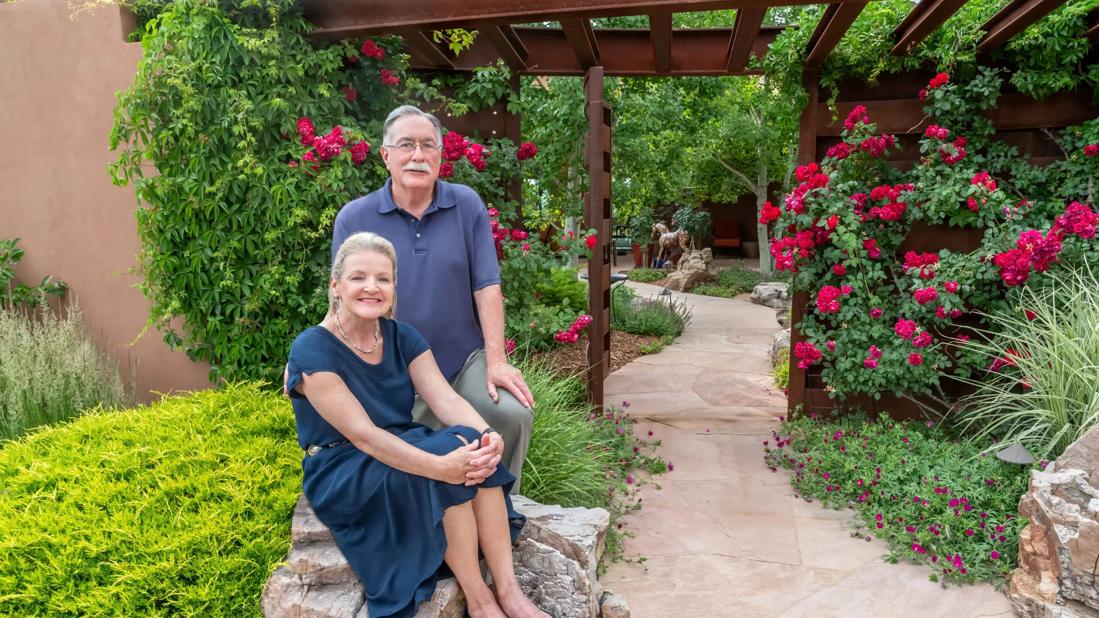
Image content: This image is available to view online.
View image online (https://assets.clevelandclinic.org/transform/7fbd5ba6-b78e-4692-b9df-0f904f732d4b/Brian-I-6-23-1-scaled_jpg)
Brian & I 6-23 1
A $10 million estate gift from Cleveland Clinic alumnus Carmen Paradis, MD (BIE’06) and her husband, Brian McGrath, will help shape the future of cardiac research and patient care at Cleveland Clinic.
Advertisement
Cleveland Clinic is a non-profit academic medical center. Advertising on our site helps support our mission. We do not endorse non-Cleveland Clinic products or services. Policy
Mina Chung, MD (Staff’94), a cardiologist in the Section of Pacing and Electrophysiology, whose area is the focus of the gift, says that it could be “paradigm changing” in providing support for arrhythmia research.
“It could really help propel our field,” Dr. Chung says. “There are a lot of areas in which we have a need for funding, including atrial fibrillation and sudden death research. Many of our studies could use this type of unrestricted funding for high-risk, high-reward research. It’s an amazing gift.”
Dr. Paradis, a plastic surgeon and retired Cleveland Clinic bioethicist, and Brian McGrath, retired Senior Vice President of Human Resources at American Greetings, now make their home in Santa Fe, New Mexico. A recent health event for Mr. McGrath drew the couple back to Cleveland Clinic for treatment, where efficient, empathetic care by Dr. Chung and her team inspired their gift, Dr. Paradis says.
Another motivation was Dr. Paradis’ experience on the Institutional Review Board (IRB), where she first met and served with Dr. Chung. “I was super impressed by how conscientious and thorough and thoughtful Mina was, and we became friends,” she says.
While on the IRB, Dr. Paradis witnessed the struggles of researchers who need funding for their work. She says she hopes that this gift will advance Dr. Chung’s work and also increase public awareness of the need for early detection and treatment of cardiac arrhythmias.
“It is a very common problem, even in those who otherwise are fit,” Dr. Paradis says. “A lot of people don’t even know they have it. Mina’s genetic research in arrhythmias may be one of the ways we let people know that we need to be watching this, especially if there is a family history.”
Another major area of arrhythmia research is in digital wearables, Dr. Chung says. She and her team are developing wearable technology to help detect and track arrhythmia.
Advertisement
Dr. Chung agrees that obtaining funding for research, including her own, can be daunting. “It’s been a challenge, especially for physician scientists who are very busy taking excellent care of patients while also trying to do research to advance their field,” she says. “It can be difficult to get funding for novel equipment and developing new technologies. Philanthropy fills a need. For instance, in our lab, we couldn’t do stem cell research without philanthropy. Personalized medicine is built on philanthropic support.”
Personalized medicine is exactly what Dr. Paradis says her husband experienced at Cleveland Clinic. “The care that my husband received at Cleveland Clinic was very efficient, but not in a cold, systematic way – rather, in a compassionate, caring way,” she says. “I’ve sent a lot of people to the Heart Institute at Cleveland Clinic who say that they felt cared for and looked after. It’s their compassion, as well as their expertise.”
Advertisement
Advertisement
Honoring Exceptional Achievement, Service and Leadership
We celebrate the exceptional achievements of four future alumni
Honoring Exceptional Achievement and Leadership
Meet Hardeep Phull, MD (CCLCM’11)
Meet William Tierney, MD, MS (CCLCM’16, OTO’18)